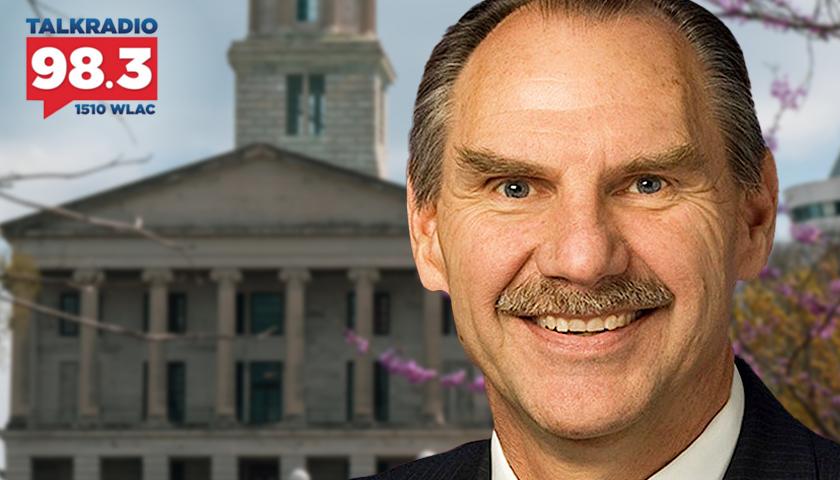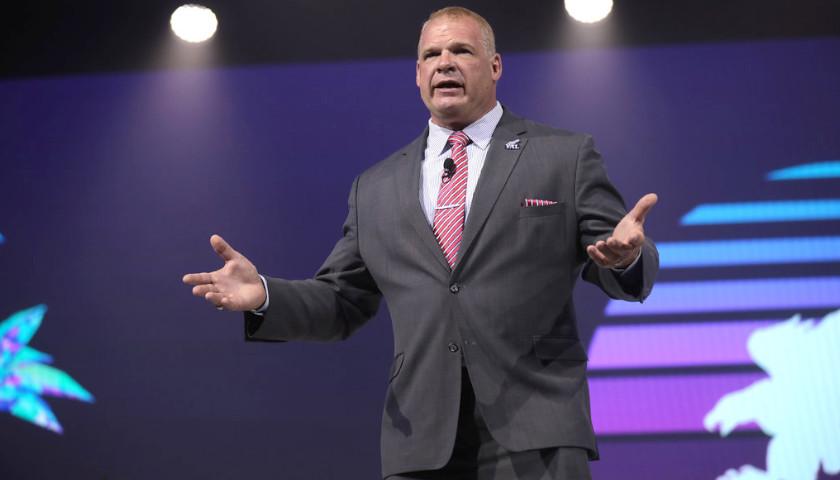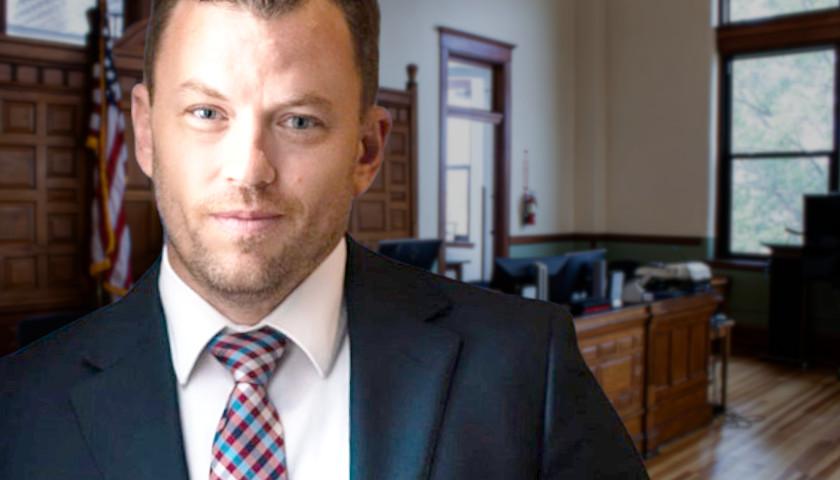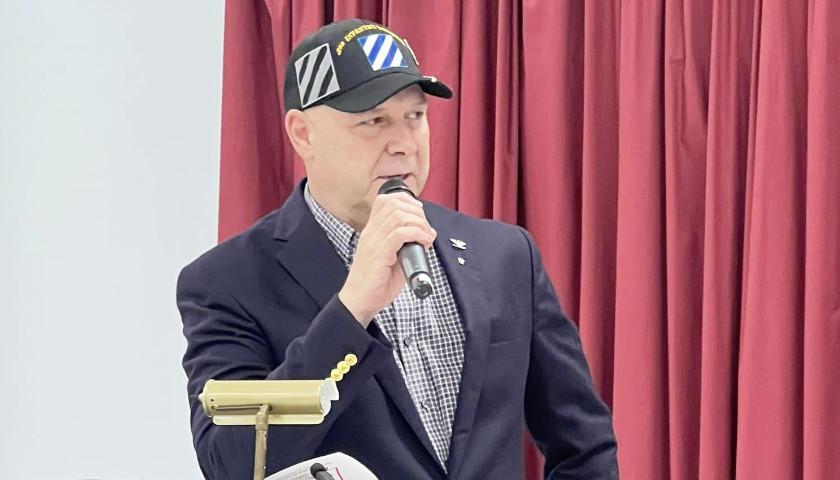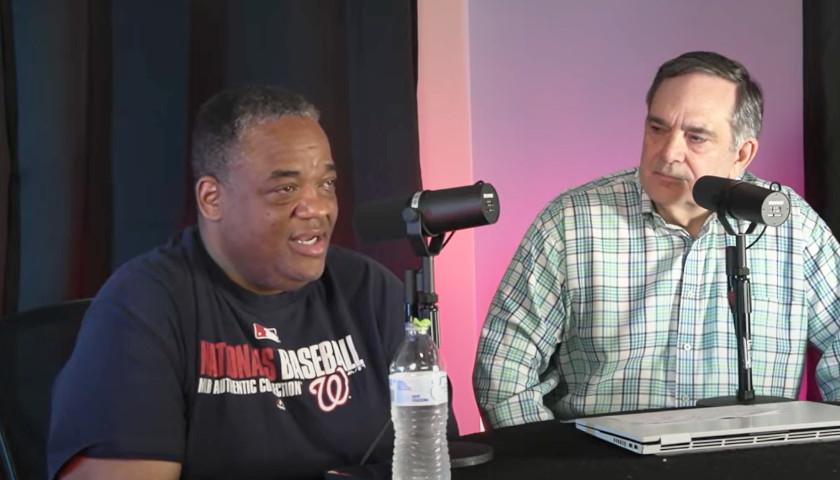Live from Music Row, Monday morning on The Tennessee Star Report with Michael Patrick Leahy – broadcast on Nashville’s Talk Radio 98.3 and 1510 WLAC weekdays from 5:00 a.m. to 8:00 a.m. – host Leahy welcomed Tennessee State Senator Mark Pody to the newsmaker line to discuss the differences between the House and Senate and refusing money from the federal government for the state’s education.
Leahy: We are delighted to welcome to our newsmaker line state Senator Mark Pody. Good morning, Senator Pody.
Pody: Yes! Good morning.
Leahy: We’re delighted to have you here. Senator Pody, just for our listeners, tell us the area of your current district. You represent parts of Davidson County, right?
Pody: I absolutely do. I’ve got all of Wilson County and I am getting about 70,000 people in Davidson County. I have, for example, all of like Percy Priest Lake area as well as the airport. That is kind of the area that I represent.
Leahy: Well, that’s something. Tell us a little bit about your career. We’ve known each other for a long, long time. You were in the state House and then were elected to the state Senate. When were you first elected to the state legislature?
Pody: I came in with Governor Haslam. In 2010, there was kind of a wave that came in and I was in that wave as well. And so I’ve served underneath all of Governor Haslam and Governor Lee. And that’s as long as I’ve been in here.
Leahy: Now I have to tell you, Senator Pody, and I’m going to use a phrase that has been used to describe your level of energy before, and you’ll smile when I tell you this phrase, but I’ve heard many people say that State Senator Mark Pody has so much energy he makes coffee nervous. You remember that one, right?
Pody: (Chuckles) Yes. I tell you what, I love serving the people. I love lifting up my Lord Jesus Christ. And anything I can do, I just give him the credit and he’s given me the energy to go out and do this.
Leahy: What’s the difference between being in the state House of Representatives and the state Senate?
Pody: I will tell you, first of all, the House is a lot more fun if you like fireworks and things like that. In the Senate, it is a lot more collegial. We might have our disagreements, but it’s not, for example, on the floor, it doesn’t get into committees nearly as much. It has things worked out a lot more privately.
Leahy: That’s what I’ve seen as well. And of course, I think you really enjoyed sort of mixing it up in the state House.
Pody: I did. I can be very vocal. I know who I am, and I’m very comfortable with the views that I have. I’ve been told that I’m extremely conservative as well as outspoken. I know my views. I don’t change them often.
And I just believe in the Constitution. I believe in limited government and limited taxes. And now that I’m in Davidson County, I want to bring those views into Davidson County as well.
Leahy: Crom Carmichael has a question for you.
Carmichael: Senator, you said that the two chambers are different and that the House is more fun. It almost sounds like you also feel like in the House, you can actually get more important legislation passed and then unfortunately, it dies in some very important legislation in your mind, in the Senate.
And I’m curious, I think the same thing happens in Washington D.C. Is it because it’s a smaller body? Is it because when you win, you win for a longer term? Why do you think that the state Senate in particular is more of a check on things like true education reform?
My sense of it is true education reform is more likely to pass in the House, especially for minority kids, than in the Senate. So if I’m wrong about that particular issue, please correct me, but if I’m not, please respond.
Pody: Sure. I will tell you, I was very interested in listening to Mr. Weber on the show earlier today talking with Michael, and he nailed it when he said that the House will probably be bringing more opportunities for education where the Senate would not.
And I’m actually on the Senate Education Committee, so we probably will be just staying with the third-grade retention law. The way it is, the House kind of debates out what they might be doing to change a little bit. I will tell you though, at the crux of the matter would be this.
The representatives are up every single two years, so they’re always having to be out with their constituents, listening and being very responsive to what their constituents need and want. In the Senate, we’re up only every four years so it is not top of mind in a lot of people’s thought processes.
Leahy: Let me follow up with that, Senator Pody. So you probably saw last week that Speaker of the House Cam Sexton said that he’s going to put out a bill to tell the federal government to keep all of their $1.8 billion of K12 public school money because with that money come strings. It got a fairly favorable reception in the House and from what I can tell in the Senate. Do you have any thoughts on that idea from Speaker Sexton?
Pody: Absolutely. In fact, I just was talking with a group about what it would look like if we just didn’t take any federal money anywhere. And I got actually a 500-page budget back, and I’m reviewing that now. But when we look at the number of strings that we have to put up with the federal government, it costs us a lot of money.
And Tennessee right now gets about 38 percent of its budget from the federal government. We’re one of the highest in the nation on the percentage that we get from the federal government. We did something with TennCare where we told Tenn Care if you would just give us the money and let us provide the healthcare that we need to in Tennessee, and if there are savings, let us share in that savings.
And we got literally a lot of money. And I think the governor addressed that in the state of the state where that program just went in and TennCare was able to use the money from the federal government, but we saved a lot of it without their strings, and we’re able to use some of that savings back in Tennessee.
I think we could do the same thing with education. If they want to give us that money, take the strings off. And if we can have better outcomes, let us have that money without your strings, and we’ll do a better job than what the federal government can do with their laws, rules, and strings.
Carmichael: How many states, Senator, do you think have asked the federal government for waivers like that? I think, for lack of a better term, would you refer to those as block grants?
Listen to today’s show highlights, including this interview:
Tune in weekdays from 5:00 – 8:00 a.m. to The Tennessee Star Report with Michael Patrick Leahy on Talk Radio 98.3 FM WLAC 1510. Listen online at iHeart Radio.
Background Photo “Tennessee State Capitol” by Brandon Hooper.
